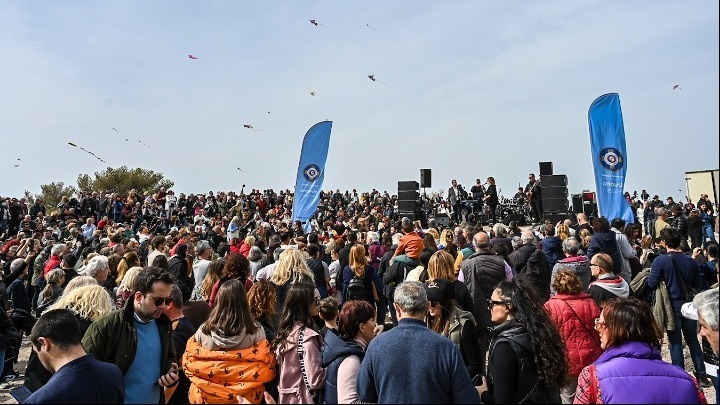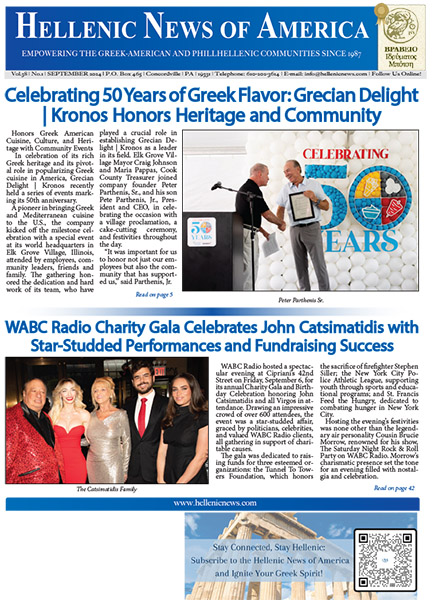Greeks throughout the country celebrated the Clean Monday holiday in the time-honoured fashion on Monday, with outdoor activities such as kite-flying and picnics, the traditional lenten delicacies, music and dancing.
While many quit the cities to enjoy the long weekend in the countryside, municipalities in Attica were also throwing parties for those left behind, offering free food, free entertainment and, in some cases, even free kites and kite workshops for children.
In central Athens, Filopappou Hill was once again the go-to location for Athenians, with Athens Mayor Haris Doukas due to visit during the day. All the capital’s municipalities have organised their own events, however, and had put their own special flourishes to the day – such as the monster lagana bread measuring three by four metres in western Athens district of Peristeri, where the celebrations included activities for children, a shadow-puppet performance and music by Yiannis Kapsalis and Makis Tsikos.
Nearly all the municipalities offered some outdoor musical event starting at 11:00 or 12:00, mostly of traditional or popular Greek music, as well as traditional dancing, though Filothei-Psychiko has organised a concert by Onirama and the Acharnes municipality event featured the Municipal Conservatory orchestra.
Local customs in other parts of Greece are even more colourful and include the “Genitsari and Boules” of Naoussa, though the troupes will this year doff the traditional mask, as well the raucous bell-wearing Koudounoforoi in Soho and carnival parades in several parts of northern Greece, in addition to the usual Clean Monday fare. In Tyrnavos, local residents each year observe the bold traditional custom known as “bourani”, a carnival event which has its roots in Dionysian phallic and fertility rites and features a soup made of wild greens that begin to sprout in spring.
Coastal Galaxidi marks the day with feasting, dancing and a “flour war” known as “Alevromoutzouroma”, Thiva has the age-old “Vlach Wedding” custom, while the NeoMagnesian Wedding is a draw for many in Lamia, as are the ‘carnival Indians’ in Makrakomi.
SOURCE; ANA-MPA








